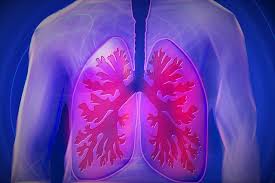
Article provided by Bonner General Health
Chronic Obstructive Pulmonary Disease (COPD), refers to a group of diseases that cause airflow blockage and breathing-related problems. There are over 16 million Americans living with COPD. The severity of COPD ranges from shortness of breath to fatigue, coughing, wheezing, and difficulty taking a deep breath. In recognition of COPD Awareness Month, here is general information about COPD, including symptoms, diagnosis, available treatments, and support resources available to COPD patients, their families, and caregivers.
COPD encompasses Chronic Bronchitis, Emphysema, Asthma, Bronchiectasis, Cystic Fibrosis. Chronic, meaning it may last for years or for life. COPD requires a medical diagnosis, which may include lab tests and diagnostic imaging. Many treatment options are available, but there is no cure for COPD.
With COPD, the airways in your lungs become inflamed and thicken, and the tissue where oxygen is exchanged is destroyed. The damage done to the lungs makes it hard for oxygen to get into the blood, and the waste product of the body’s cells, carbon dioxide, to get out. Those with COPD are often short of breath, cough up mucous, and have trouble with physical activities.
According to the American Lung Association, about 85 to 90 percent of all COPD cases are caused by cigarette smoking. Environmental factors, including long-term exposure to pollution, second-hand smoke, or chemicals, can also cause COPD. A small percentage of cases are genetic, resulting in a condition that affects the body’s ability to produce a protein (Alpha-1) that protects the lungs.
There are four stages of COPD, according to the American Lung Association’s “GOLD” standard. Each stage is more progressive, but knowing which stage the patient is in makes it easier for the provider to follow the optimal treatment plan.
Your provider can diagnose different forms of COPD, often after ordering a pulmonary function test (PFT). Bonner General Health has experienced Respiratory Therapists who perform these tests in their lab daily.
Once diagnosed, your provider will discuss various treatment options to help alleviate the symptoms. Small volume nebulizers (SVNs) or metered-dose inhalers (MDIs) are medications that dilate the bronchial tubes (bronchodilators) and relieve airway inflammation (corticosteroids). Your health care provider can help you decide what options would work best for you. Occasionally, supplemental oxygen is needed to support those with COPD.
The good news is, COPD is preventable. If you are a smoker, stop immediately. Avoid second-hand smoke and keep your home a smoke-free zone. Be mindful of other pollutants around you and your family, including chemicals, dust, and fumes in your home, work, and places you frequent.
Bonner General also offers a free Better Breathers Club to community members which meet once monthly during the day. This club focuses on better living with COPD. A variety of educational sessions are held at each meeting. In-person meetings are currently suspended however there are other options available! Contact BGH Cardiopulmonary Department at 208-265-1045 and a Respiratory Therapist will arrange to get you the necessary start-up information.
With a proper support system and a treatment plan, those with COPD can live a comfortable, even active lifestyle. If you are concerned about your risk and potential for COPD, talk with your provider.
Article Submission for Sandpoint Living Local Magazine, November 2020.

